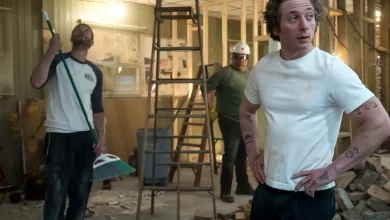El Salvador’s Tragic Legacy: The President Who Jailed 1% of the Population and the Enduring Consequences for Their Children

In recent years, El Salvador has found itself thrust into the spotlight, not for its picturesque landscapes or rich cultural heritage, but rather for the controversial actions of its president. This small Central American nation has been grappling with the aftermath of a decision that led to the imprisonment of a staggering 1% of its population, leaving a trail of consequences that is now being borne by the innocent children of those incarcerated. In this article, we delve into the details of this unprecedented event, examining the impact it has had on families, communities, and the nation as a whole.
The Controversial Presidency
In 2019, Nayib Bukele assumed the presidency of El Salvador with promises of change and a commitment to combating corruption and crime. However, his methods soon became a cause for concern, as he implemented heavy-handed measures to tackle the country’s longstanding issues. The most controversial of these was the mass incarceration of thousands of individuals, amounting to 1% of the entire population.
The Impacts on Families
The ripple effects of such massive imprisonment were felt most keenly within families. Many of those detained were breadwinners, leaving their families without a source of income and plunging them into economic turmoil. The sudden absence of parents led to emotional distress and trauma, particularly among the children left behind. The psychological toll of having a parent behind bars is well-documented, and in El Salvador, this crisis unfolded on an unprecedented scale.
Children Left in Limbo
With their parents incarcerated, children faced an uncertain future. Many were forced to drop out of school to contribute to the family’s income or take care of younger siblings. The education system, already strained, suffered as a consequence, with a generation of young minds deprived of their right to learn and grow. The long-term implications for the nation’s development and progress are alarming.
The Struggle for Justice
As news of the mass incarceration spread, human rights organizations and activists within and beyond El Salvador raised their voices in protest. The accusations of arbitrary arrests, lack of due process, and political motivations behind the crackdown were brought to the forefront. The international community closely monitored the situation, expressing concerns about the erosion of democratic values in the small Central American nation.
International Backlash
El Salvador’s president found himself facing international condemnation for the drastic measures taken during his tenure. The United Nations and various human rights organizations called for an end to the arbitrary arrests and demanded a thorough investigation into the alleged abuses of power. Sanctions were discussed, further isolating the country on the global stage.
A Nation Divided
The events surrounding the mass incarceration exacerbated existing divisions within El Salvador. Political polarization intensified as supporters of the president defended his actions, citing the need for strong measures to tackle crime, while opponents called for accountability and respect for human rights. The societal fabric of El Salvador was strained, with communities grappling with the aftermath of a presidency that left scars on the nation’s collective psyche.
The Road to Recovery
As El Salvador continues to grapple with the consequences of mass incarceration, efforts are being made to address the underlying issues that led to such drastic measures. Initiatives to support the affected families, especially the children, are underway. Education programs are being developed to reintegrate students who dropped out during the crisis, and mental health services are being expanded to provide support to those traumatized by the events.
Conclusion
The presidency that saw 1% of El Salvador’s population incarcerated will be remembered as a dark chapter in the nation’s history. The consequences are far-reaching, affecting families, communities, and the very fabric of society. As El Salvador strives to recover and rebuild, the international community watches closely, hopeful that lessons will be learned and that the nation can emerge from this challenging period stronger, more united, and committed to upholding the principles of justice and human rights.



